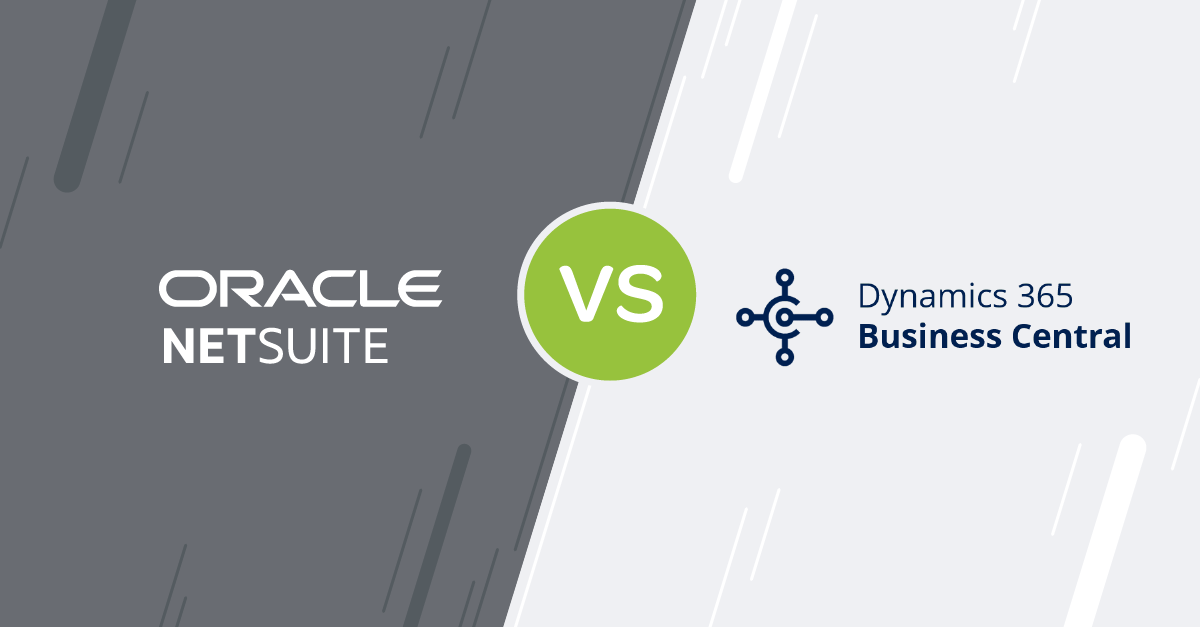Blog
Share this
The Cost of Doing Nothing: Why You Shouldn't Delay Your ERP Decision

by Jalene Ippolito on July 21, 2022
As a growing company, you eventually reach the point where your systems aren’t working as well as they used to. Chances are that you have a collection of separate applications for each department and none of them talk to each other, making it hard to get a true picture of your performance – and decide what the next right move is to continue your growth.
So, you start the process of evaluating ERP software. You and your team invest months' worth of time and energy researching solutions, talking with ERP partners and participating in demos. Then it’s time to choose your new ERP software and your decision sounds something like…
“We’re not ready right now.”
“We need more time to evaluate the options.”
“We want to evaluate other solutions to ensure we have the right one.”
“The timing just isn’t right.”
“We’re in a holding pattern.”
There are many reasons you might decide to do nothing, but it’s important to remember that no decision is still a decision. And it comes with a cost.
What’s holding you back from implementing ERP?
According to an Aberdeen Group study, the number one reason companies don’t implement ERP is that they think they’re too small to need it. In our experience, companies with revenue of $10 million or more are perfect candidates for ERP. But we’ve also worked with $3 million companies that want to implement ERP software early to help them achieve aggressive growth. Cloud ERP vendors like NetSuite are making ERP accessible to smaller companies with streamlined implementations and modular solutions that allow you to start with financials and expand your solution over time, making size less of a barrier today than it used to be.
Working with SMEs for 18+ years, we’ve seen a few other common reasons behind “no decision”.
- You have other initiatives that eat up your ERP budget. This could be another major investment, like a new warehouse. Or you might shift the budget to revenue-generating activities because the return seems more tangible than the operational savings you’ll see with ERP software.
- You don’t have the cash flow you need to fund the implementation project. (Before opting out of ERP for this reason, explore these funding options for Canadian companies.)
- You’ve heard horror stories about failed ERP implementations and you’re nervous that you’ll join those ranks. This could be driven by concerns over the disruption to your business. Or perhaps you aren’t confident that your company culture can adopt more sophisticated technology. Put simply – you get cold feet.
- Even though there’s a clear need for ERP, you’re so busy running the business that making the time to implement new software doesn’t feel like a top priority. (Hint: When you’re so busy with the day-to-day that you can’t work on the business, that’s a strong indicator that you need ERP.)
- You see opportunities to improve your processes, but you’re not feeling enough pain yet to justify a change. The best way to measure the “pain” is to talk to your people – some might be feeling it more than others, so it’s worth broadening the scope to understand how things are really working for everyone on your team.
As you can see, some reasons are related to business priorities, but often the fear of the unknown is in the driver’s seat. The best thing you can do to alleviate those fears is to work with a strong ERP implementation partner that understands your business (including your culture) and can guide you through the process to a successful outcome.
What’s the cost of no decision?
When you decide to do nothing, you’re choosing to protect the status quo.
But is the status quo worth protecting?
As you ponder that question, consider the various ways that doing nothing impacts your business (and your team).
Doing nothing costs money
ERP software is an investment. When you focus only on the price, you can lose sight of the value you’ll get from that investment.
If you find yourself wavering based on the cost, remind yourself why you started evaluating ERP in the first place. Chances are, you’re struggling with some of these challenges (among others):
- Long invoicing cycles due to manual effort
- High inventory costs because you’re stocking too much of the wrong product
- Frequent expedited shipping costs because you don’t have the right products in stock
- Limited visibility into cash flow and overall financial performance
- Increasing labour costs as you hire more people to handle manual processes
Each challenge you’re currently facing impacts your financial performance either directly or indirectly. In theory, you can “save” money by not implementing ERP software. But the sooner you make that investment, the sooner you can address these challenges and improve financial management.
As a quick test, apply these results to your business and see what the financial impact could be. Worth the investment?
- Increase revenue performance up to 8%
- Reduce days sales outstanding by 10–20%
- Lower inventory investment by 25–30%
- Reduce replenishment spending by 15%
- Lower stockouts by 12–22%
Doing nothing lowers efficiency
One of the common reasons growing companies evaluate ERP software is efficiency – you know you’re spending too much time transferring data back and forth between multiple systems, reconciling duplicate data and performing manual processes. And that doesn’t even touch on the time spent manually compiling reports across various data sources.
If you choose not to implement ERP, what’s the alternative solution to address the efficiency problem? You either end up hiring more people (which comes with a clear cost) or ask your team to take on more (which takes a toll over time).
Consider Aircom Instrumentation’s story – before implementing ERP, one department was planning to hire a fourth person. With the efficiency gains through automation in their ERP system, they no longer had a need for the additional hire. When you consider an employee’s wage, that’s a significant savings.
Doing nothing impacts employee morale
When you’ve taken your team all the way through an ERP evaluation and then decide to do nothing…it can be a letdown. If you’ve had software demos, the impact can be even more significant. Your team now has a sense of how ERP could help them be more effective in their roles, but they’ll have to continue dealing with workarounds and manual processes.
This can lead to frustration and at the extremes, could end up costing you some of your best people. Good employees expect good tools so they can perform at their best.
Doing nothing delays growth
You started evaluating ERP software for a reason – you saw the signs that your current software wasn’t working anymore. Those pains will only get worse the longer you wait. The limitations of your systems will end up limiting your growth. This shows up in a few ways.
Visibility is a big one – with data scattered across multiple systems, it’s tough to get a clear picture of how you’re performing. Instead of using real-time reporting and analytics (based on data you trust), you’re making critical decisions about your company’s future based on the best guess.
Pursuing new opportunities can also be a challenge without the right core system. You’re forced to create new workarounds in your processes and possibly add more new systems to the mix, amplifying the disconnect in your data, which in turn impacts efficiency and profitability. The waterfall effect can be significant.
Don’t get stuck in indecision
Doing nothing can avoid investment and business disruption in the short term, but you’re just kicking the can down the road. Indecision can have unintended consequences – and waiting until you’re desperate for new software can make the transition more difficult.
The best-run companies implement ERP software ahead of the curve. They set a strong foundation so they can accelerate into growth instead of playing catch-up.
Share this
Stay in the Know!
Join other SMEs who receive our monthly ERP insights, tips and best practices.
You may also like

ERP Funding for Canadian Businesses

Should You Work with a NetSuite Implementation Partner or Go Direct?



